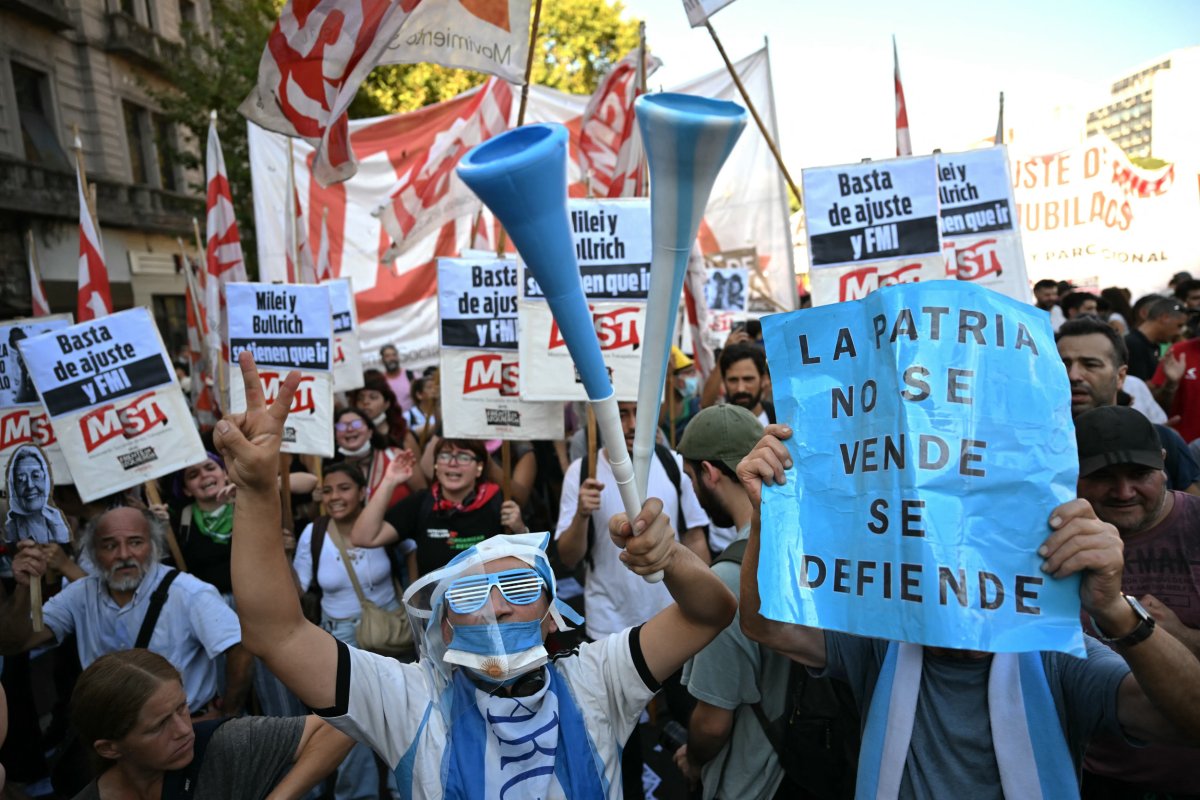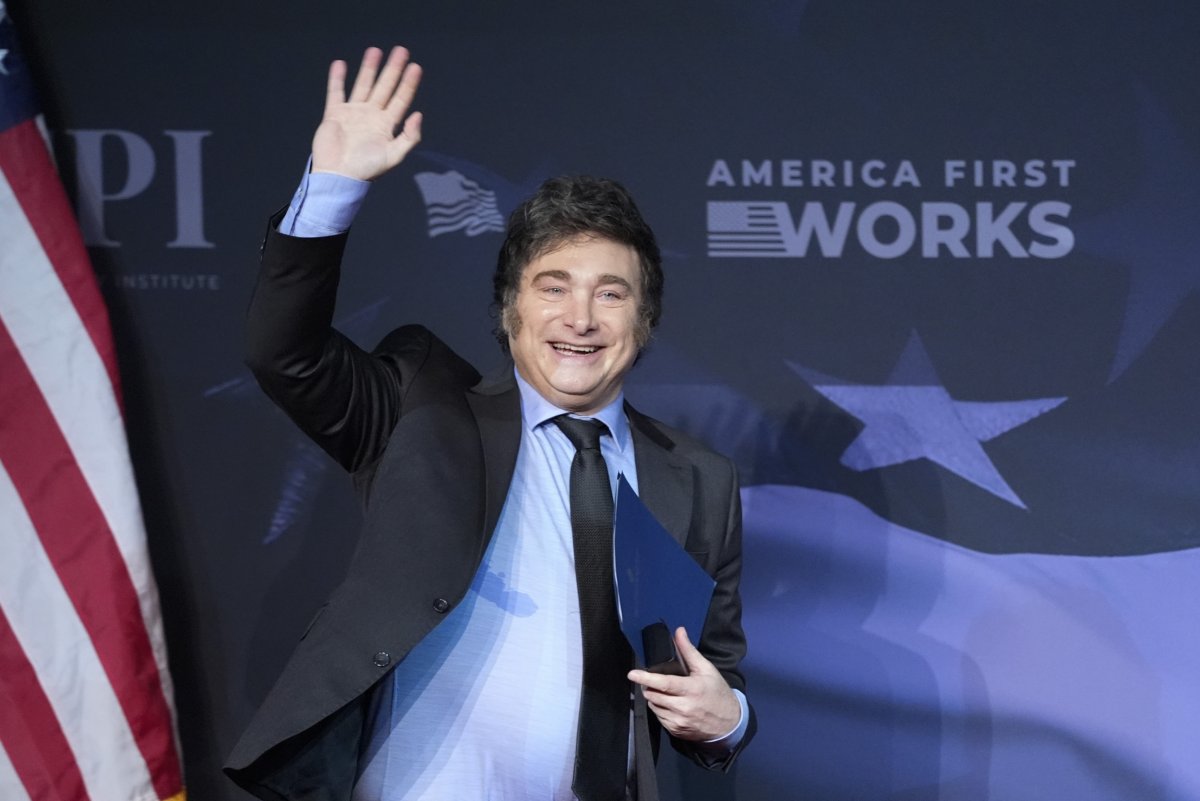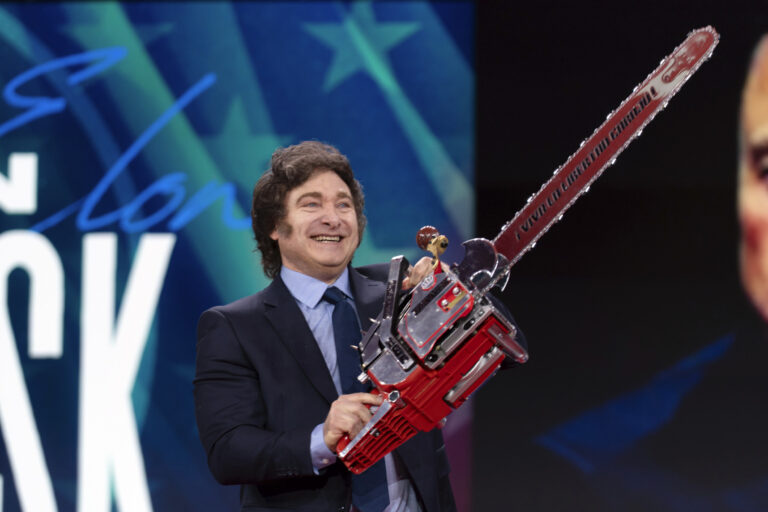Just months ago, Argentina seemed destined for another economic collapse: soaring poverty, runaway inflation and dire warnings from economists that President Javier Milei’s radical austerity measures would choke growth. Instead, the economy is expanding at a pace few thought possible — leaving Milei’s legions of critics scrambling for explanations.
In a stunning reversal, Argentina’s economy posted a 7.6 percent year-over-year growth rate in the second quarter of 2025 — its strongest in nearly two decades — fueled by deregulation, sharp cuts to public spending and the loosening of currency controls. Retail sales, manufacturing and finance all surged, helping consumer spending jump nearly 3 percent from the previous quarter.
Since assuming office in December 2023, the firebrand libertarian economist has slashed government expenditures and secured a $20 billion deal with the International Monetary Fund (IMF). His administration promised to dismantle decades of state intervention in favor of free markets — policies that many observers warned would deepen recession and spark social unrest.

More
AP Photo/Jose Luis Magana
The Milei Method
Part of the turnaround has been Milei’s dismantling of el cepo, the restrictive system of exchange controls first imposed in 2011 that prevented companies from moving profits abroad and limited Argentines’ access to dollars.
After he lifted the restrictions, the peso was allowed to float within a managed band, narrowing the gap between official and black-market exchange rates. Reserves at the central bank climbed to their highest level in two years, bolstered by IMF funds, a $5 billion swap line with China and fresh loans from multilateral banks.
Milei also ripped up Argentina’s rent-control law in late 2024, removing limits on lease terms and rent increases that had discouraged landlords from renting. Within months, the supply of rental housing in Buenos Aires jumped by 195 percent, according to the city’s real estate observatory, and median asking prices fell by about 10 percent as more apartments returned to the market.
Some leftist and socialist organizations, including the Socialist Workers’ Party (PTS) and the Workers’ Left Front, criticized the move at the time, arguing it favored landlords at the expense of tenants. But the reality has so far borne out the opposite: supply has soared. On Zonaprop, one of Argentina’s largest real estate platforms, traditional rental listings surged from about 5,500 before the reform to over 15,300 — a 180 percent increase — with a third of that rise happening in just the first month after deregulation.
“We have the best president in the world,” Argentina’s economy minister, Luis Caputo, wrote on X as he shared the recent growth figure.
The surge in GDP has defied predictions from financial institutions, including the IMF, that growth would stagnate. On a June 18 panel hosted by the Peterson Institute for International Economics, Harvard economist Carmen Reinhart warned: “What you begin to see is cumulative real appreciation and then the end of the stabilization program with a big depreciation. We’ve seen this story before in Argentina.”
Former IMF official Alejandro Werner acknowledged Milei’s fiscal adjustment as “remarkable” but cautioned that its sustainability depends on navigating political risks and avoiding another exchange-rate shock. “The next election might show that he has completed the first phase of consolidating political support for reforms, but the path is risky,” Werner said.
The strongest case for optimism has been Milei’s success in driving down inflation. In May, consumer prices rose just 1.5 percent — the lowest monthly figure in five years, according to Argentina’s national statistics agency. That decline is widely seen as a political and economic turning point.
Still, some economists urge caution. “One has to consider in this disinflation process that we’ve accumulated a very high inflation rate throughout Milei’s term,” said Guido Agostinelli, an economist and professor at the University of Buenos Aires, in an interview with Newsweek.
“That was driven both by the money supply inherited from the previous administration and by Milei’s own decisions, like the exchange rate adjustment when he took office.”

Photo by Luis ROBAYO / AFP) (Photo by LUIS ROBAYO/AFP via Getty Images
Agostinelli noted that inflation peaked at 25.5 percent in December and has since slowed month over month, but warned the decline is deceiving because it is at least partly driven by falling wages and collapsing consumption.
“Since there is no strong demand, prices naturally don’t rise as one might expect given higher input costs in industry and commerce,” he explained. He added that the relatively stable exchange rate — backed by IMF lending and new debt — has also helped cool price pressures, at least for now.
Yet, the government’s fiscal overhaul and monetary tightening have come at a steep social cost. Poverty, while down from its December peak of 53 percent, still affects 38 percent of Argentina’s population. In April, a general strike paralyzed Buenos Aires as unions protested budget cuts and reduced government transfers.
Even Milei’s allies acknowledge the precariousness of the moment. José De Gregorio, a former central bank governor in Chile, said at the Peterson Institute panel: “I have to admit they are doing the right things. They have a very good chance to succeed. But we know how hard it is here.”
Can It Last?
While Milei’s sharp fiscal and monetary tightening has won praise for restoring stability, economists warn Milei’s recovery rests on a fragile foundation. As Agostinelli noted, that the current disinflation indicates collapsing demand that threatens to reanimate a recession that ended just last year.
“Since there is no strong demand, prices naturally don’t rise as one might expect given higher input costs,” he said.
Martín Redrado, former head of Argentina’s central bank, cautioned that the country risks taking the wrong lessons from taming its inflation without addressing deeper structural challenges.
“We’ve settled for defeating inflation, but we shouldn’t be complacent,” Redrado told Los Andes. He pointed to the lack of a comprehensive tax overhaul and persistent barriers to corporate capital flows as signs the recovery is not yet secure.
External factors also pose serious risks. Global conditions — particularly the policies of Milei’s ally, U.S. President Donald Trump — have weakened Argentina’s key export markets. Trump’s trade war has driven down prices for oil and agricultural commodities, reducing Argentina’s export earnings and complicating Milei’s effort to build reserves and attract investment.
As The Economist reported, Trump’s economic brinkmanship “makes for risk-averse investors,” and Argentina, with its reliance on IMF lending and an overvalued peso, remains highly exposed to external shocks.
Yet despite warnings about volatility ahead, Milei appears convinced that the economy is firmly on the path to recovery. On television, he keeps repeating his now-familiar refrain: “Instead of talking about growth at Chinese rates, the world will soon be talking about growth at Argentine rates.”

Alex Brandon/AP


